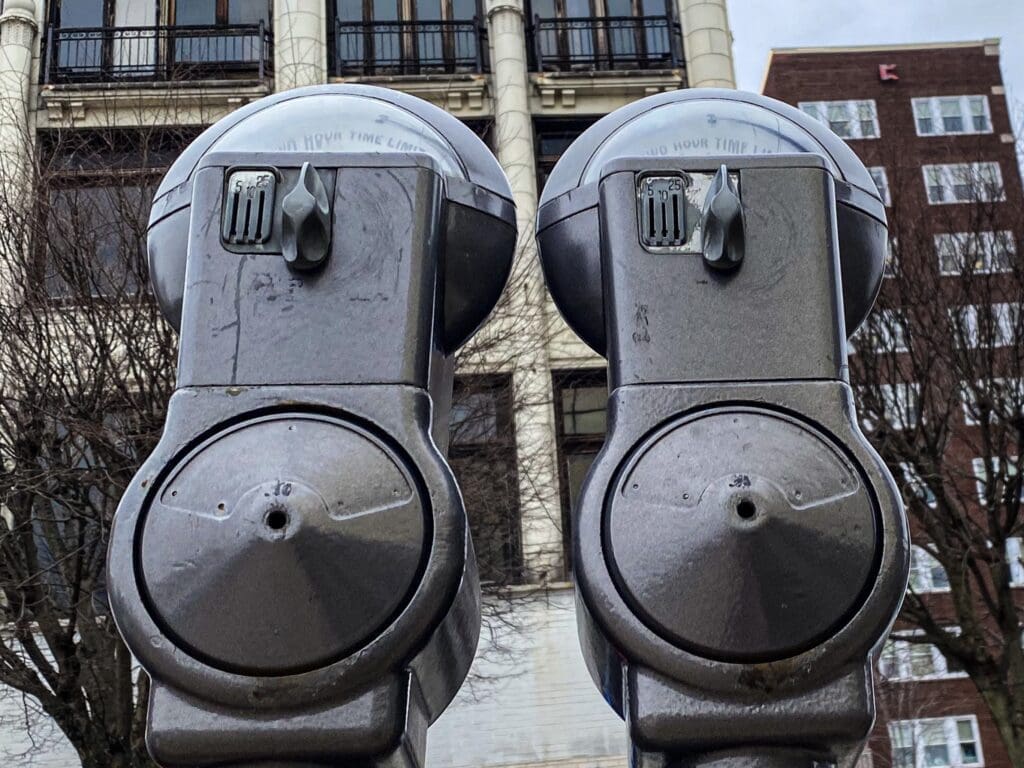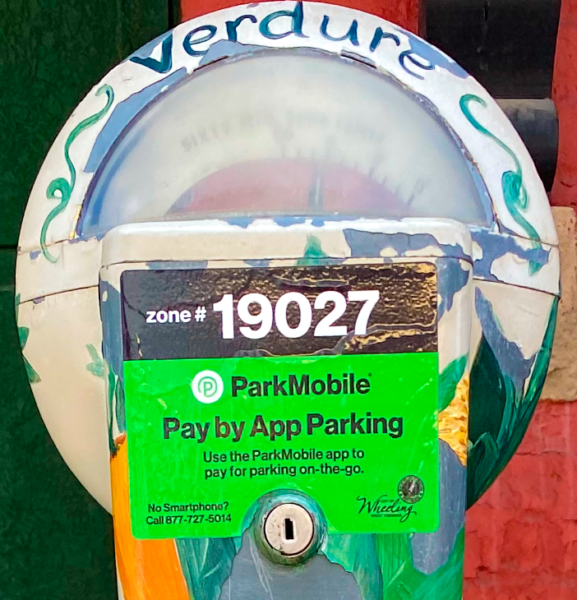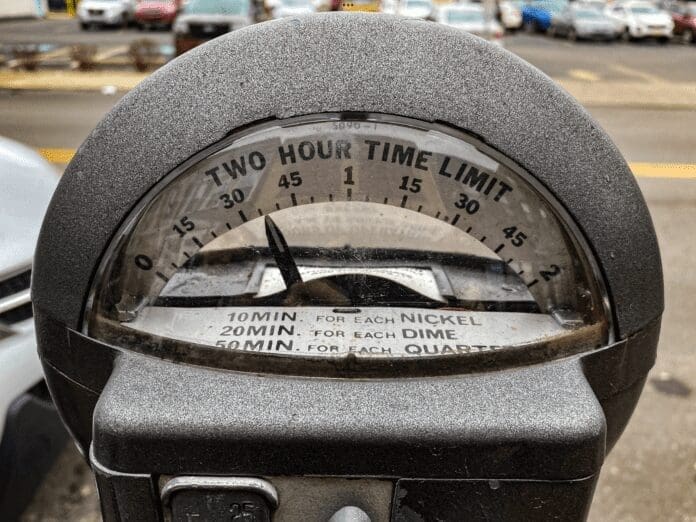Questions have been asked and polls have been taken and studied, and usually, one of the most popular answers is to remove the parking meters in downtown Wheeling.
The question?
What can the City of Wheeling do to help current downtown businesses and attract new ones to open along Main and Market streets?
And the answers?
The most popular responses concentrate on eliminating the city’s Business & Occupation taxes and the paving of Main and Market streets, and the removal of the city’s parking meters usually shows up in the top three.
Thing is, though, not only do the meters generate around $200,000 annually, but the time limits also allowed for more customers to visit businesses.
“The biggest ‘con’ of all when it comes to taking out the parking meters in the downtown area is that people will park along our streets for extended periods of time because those vehicle owners work or live nearby,” Herron explained. “Parking meters are not there for revenue. Parking meters are there to provoke turnover.
“If you do not have some sort of meter or some kind of time limit, then what you’re doing is promoting free parking along a street where your businesses are trying to do business. Plus, these days especially, consumers like to be as close to the front door of a business as possible, so taking out our parking meters would not be helpful at all to our business owners,” he said. “Even with the meters, we still have a lot of people who feed them all day long.”

Cash Money
The coins collected from the city’s parking meters along with the digital dollars from the City’s adopted parking app are placed into the general fund. In other words, those quarters are not earmarked for anything specific but instead are used to pay miscellaneous expenditures.
And the coinage continues to increase, according to the city manager.
“The revenue levels for the parking meters in the city of Wheeling have bounced back very nicely,” Herron reported. “It’s not yet all the way back to pre-pandemic levels, but it did bounce back quicker than I thought it would. That’s been a nice positive.
“Before the pandemic hit, there were sections of downtown – mainly the north end of downtown where you have the Stone Center and The Health Plan – where our available parking was full most of the business day,” he said. “That included the 10th Street Garage and the Market Street surface lot, too, and then one week later, they were both empty. At the time the pandemic hit (in March 2020), we had a lot of positives as far as revenue, and then most of it went away.”
The same can be said about some of the City’s other revenue streams, including the B&O Tax.
“It is taking a little while for a lot of those revenue streams to bounce back, and that’s been understandable to me because people are still being very careful,” Herron said. “For example, our sales tax revenue for this year is up, and we just got our fourth quarter numbers from 2022 and they were up. Those are good signs, and the B&O Tax revenue is down, but that just means we no longer are receiving any dollars from those companies.
“Many people likely do not realize that the state of West Virginia’s contractors pay B&O taxes to the municipality where the work is being performed, and we’ve had a lot of that during the past several years, and it will continue with the streetscape,” he said. “The I-70 project was more than a $215 million project, so that’s been a nice boost for us.”

Back to the Meters
Parking meters have been a topic discussed by members of Wheeling’s council members, but those talks have involved the implementation of a smartphone payment option rather than the removal of the meters. The technology, developed and sold by ParkMobile LLC, is available to motorists in the areas where parking meters are operational, including Centre Market where stickers with app instructions were placed over the painted “works of art” meters.
The actual removal of parking fees, however, is not considered an option by city leadership.
“The most important function of a parking meter is the placement of a time limit on the space,” Herron said. “Business owners rely on that turnover and if that’s not happening, then it’s hurting their business, which, in turn, leads to a decrease in our tax revenue.
“If you go to a mall, there’s always plenty of parking, and most of the time you can decide how far away or how close you want to park to one of the entrances, but that’s not the case when it comes to a downtown urban area,” he reiterated. “Of course, there are a lot of people who want the meters removed, but that’s only when someone isn’t looking at the big picture.”
During the two-year, $30 million streetscape, though, consumers visiting downtown Wheeling may be offered new options. The streetscape not only will address the roadways and signalization, but also the curbs and sidewalks along Main and Market streets.
“A decision has not yet been made by the members of city council as far as how we’re going to handle the parking in the areas where the construction is taking place. There has been some thought of two-hour parking up and down the streets, and that could be enforced by chalking tires,” Herron revealed. “There’s a thought to look at parking kiosks, and that’s a local decision that will be made soon.
“I will be examining those scenarios in the near future so decisions can be made by city council in time for the construction crunch we expect to begin this spring,” the city manager added. “But removing them completely is not an option that’s been discussed because in most ways that would make it far worse for our businesses during the two-year project. When we waved the parking fees during the pandemic, the scenario was completely different because of the restrictions that were in place for essential and non-essential businesses.”


